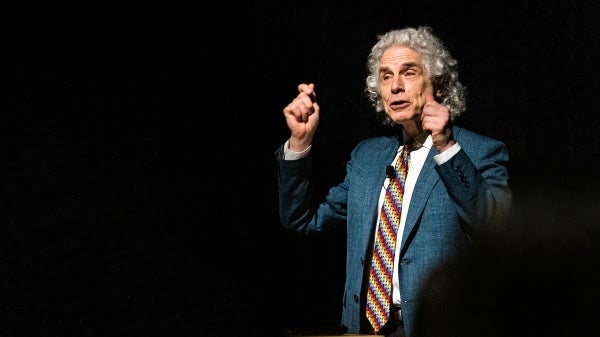Psych for Life initiative illustrates how ASU psychology degree translates into career success

College might last four years, but the Arizona State University Department of Psychology remains committed to students for much longer with the new Psych for Life: Career Pathways Initiative. Photo by ASU
College might last four years, but the Arizona State University Department of Psychology remains committed to students for much longer.
“Psych for Life: Career Pathways,” the opening program within a new initiative designed to augment student career and life success, launched this fall.
Psych for Life began with the chair of the Department of Psychology, Foundation Professor Steven Neuberg.
“If you looked at educating students as a lifelong endeavor, and not just four years, how would you do it differently?” he recently asked psychology alumni.
Last April, more than 400 psychology alumni filled out an intensive career survey about the journeys they took to their current careers. The survey gave the psychology department information about resources that could help future students find their own careers.
The last question of the survey asked whether alumni were willing to take the time to help mentor current students. An overwhelming number of these alumni said yes, and thanks to their help, Psych for Life: Career Pathways is now a resource for current psychology students and alumni.
A common assumption about a psychology degree is that the majority of graduates end up working in mental health-related fields. That number is actually about 30%, so what are the other 70% doing?
The survey showed the most popular careers among ASU psychology graduates were behavior analysis, business, education, health care, law, research/user experience(UX), social work and statistics.
The ASU psychology alumni did not just give answers to the survey questions; some came to campus and met with current psychology students. Ryan Ferguson, a senior data analyst with the Houston Astros, and Jessica Bodford, a research manager with Facebook, answered in-depth questions from students about how their ASU psychology degrees prepared them for their current jobs.
RELATED: Melanie Katzman addresses the psychology of workplace satisfaction in newly released book
“The Department of Psychology is no longer looking at simply a pathway to graduation for our students. Instead, we are focusing on a pathway to success in life,” Neuberg said. “A good understanding of psychology prepares students for success in any career, and in relationships outside of their careers as well.”
For psychology students, this change in focus means a purposeful shift toward increasing opportunity and career guidance at every step of their relationship with ASU. With financial support from the Cialdini Leap Forward Fund, the department opened the Student Success Center, which provides guidance with writing and statistics. The Psychology Department academic advising unit has also increased its focus on providing more high-quality internships and student opportunities for career development. Participation in internships has increased by 50% and is expected to double by next semester. As of October 2019, over 200 students had submitted internship interest forms.
“Our goal is to provide every psychology student an opportunity to be mentored, participate in an internship and conduct research with a faculty member,” Neuberg said. “We know our students are capable of amazing things, and we are answering the call to innovate and provide more resources for them to discover their ultimate career.”
More Science and technology
ASU Interplanetary Lab celebrates 5 years of success
Five years ago, an Arizona State University student came up with the idea of creating a special satellite in what was then the…

ASU secures NSF grant to advance data science literacy as demand soars
In an era where data permeates every facet of our lives, the importance of data literacy cannot be overstated. Recognizing this…

Popular science author Steven Pinker explores rationale behind irrational thinking at ASU event
Popular science author Steven Pinker returned to Arizona State University’s Tempe campus on Feb. 7 for a rational talk about…